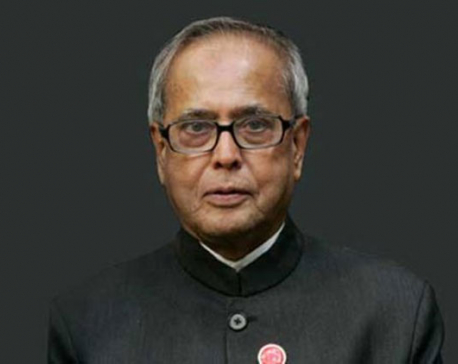
OR
Statute implementation
The only way to evaluate the seriousness of our political class to implement the new constitution is to see if their actions so far have been in line with the constitution. In this they have failed miserably. The new constitution capped the number of ministers in the cabinet at 25. Both the governments formed after the promulgation of the constitution on September 20th, 2015 violated this provision. Now with less than three weeks for the first anniversary of constitution promulgation, key milestones are likely to be missed. For instance the new constitution has a mandatory provision whereby one high court is to be established in each of the seven provinces within a year of the commencement of the constitution. The bill to this effect was tabled in the parliament by the previous KP Oli government. The full House then forwarded the bill to the parliament’s bills committee. The committee, at long last, passed the bill this Friday and now it awaits parliamentary endorsement. Article 287 of the constitution, likewise, provisions for a mandatory language commission, to be formed with representatives from each of the seven provinces. This commission will then be tasked with recommending official languages of the government within five years. The bill to this effect has been stuck in the cabinet for over a month.
The government claims that the bill on high courts can easily be passed within the next few days with minimal deliberations. On language commission, it says the commission can be formed through a cabinet decision if the parliament delays its endorsement. Such last-minute desperation has unfortunately characterized, first, our constitution-making exercise and now, its implementation. It also shows the challenges of implementing the constitution in an unstable polity where government changes every nine months. The previous Oli government had planned to enact laws related to language commission by mid-July and the one related to high courts by mid-August. Precious time was wasted in the process of changing the government and then while cobbling together a new cabinet. Strangely, while the Oli government had right at the start unveiled its action plan for constitution implementation, the new government has neither adopted the old plan nor has it proposed a new one of its own. There is thus a lot of confusion regarding how the new government plans to go about the important task.
The first course of action for the new government would be to quickly unveil its tentative, time-bound action plan. That will give some momentum to constitution implementation. Then it must engage all the stakeholders in the constitutional process and together work out how to clear the hurdles to the establishment of other important constitutionally-mandated commissions, like the federal commission, whose job it will be to recommend province demarcations.
Political parties also remain divided over the work of the commission formed to suggest the number and demarcations of local bodies, with only seven months to go for the local elections announced for April-May, 2017. All these are issues to be worked out through intensive consultations among political parties. But there has been no political dialogue since the formation of Dahal government at the start of August. Technical issues related to these commissions will not be that difficult to resolve if there is a broader political understanding, particularly regarding provincial boundaries. Otherwise with every important constitutional milestone that is missed, the legitimacy of the new constitution will more and more be questioned.
You May Like This

What’s your plan for Dashain?
Dashain is an eagerly awaited time of the year for all Nepalis. It is the time of the year when... Read More...

FLOOD ALERT: Rain in the forecast, floods and landslides affect lives across the country (WHAT’S HAPPENED WHERE?)
KATHMANDU, July 12: Rain is the forecast throughout the country, according to an alert published by the Department of Hydrology... Read More...

Special security plan for Indian President's visit
KATHMANDU, Oct 29: A special security plan has been prepared for the forthcoming state visit by Indian President, Pranab Mukherjee,... Read More...





Just In
- CM Kandel requests Finance Minister Pun to put Karnali province in priority in upcoming budget
- Australia reduces TR visa age limit and duration as it implements stricter regulations for foreign students
- Govt aims to surpass Rs 10 trillion GDP mark in next five years
- Govt appoints 77 Liaison Officers for mountain climbing management for spring season
- EC decides to permit public vehicles to operate freely on day of by-election
- Fugitive arrested after 26 years
- Indian Potash Ltd secures contract to bring 30,000 tons of urea within 107 days
- CAN adds four players to squad for T20 series against West Indies 'A'












Leave A Comment